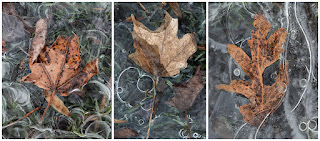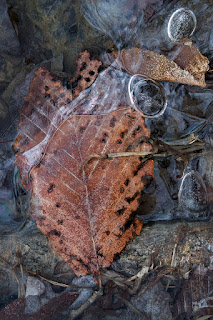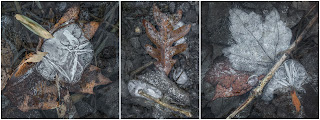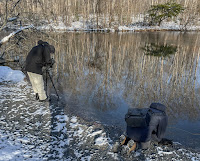- Alfred Noyes (1880 - 1958)
Sunday, January 30, 2022
New Riddles
Tuesday, January 25, 2022
An incandescent light, Extinguished
"Each morning when I wake up you offer me twenty-four brand new hours to cherish and enjoy your beauty. You gave birth to every miraculous form of life. Your children include the clear lake, the green pine, the pink cloud, the snowcapped mountain top, the fragrant forest, the white crane, the golden deer, the extraordinary caterpillar, and every brilliant mathematician, skilled artisan, and gifted architect. You are the greatest mathematician, the most accomplished artisan, and the most talented architect of all. The simple branch of cherry blossoms, the shell of a snail, and the wing of a bat all bear witness to this amazing truth. My deep wish is to live in such a way that I am awake to each of your wonders and nourished by your beauty. I cherish your precious creativity and I smile to this gift of life."
- Thich Nhat Hanh (1926 - 2022)
Love Letter to Earth
Postscript. A bit over a dozen years ago I mourned the loss of Zen Buddhist roshi (and gifted photographer) John Daido Loori. I now mourn the passing of another Zen Buddhist master, Thich Nhat Hanh, whose physical pattern dissipated into the eternal mystery on Jan 22, 2022. Thây (as he was known by his followers, which is Vietnamese for teacher), may not have been a photographer, but he radiated an incandescent light of such spiritual intensity that no camera was ever needed.
"We have a lamp inside us. The oil of the lamp is our breathing, our steps, and our peaceful smile. Our practice is to light the lamp." - Thich Nhat Hanh
Sunday, January 23, 2022
Fragmentated Wholes
- David Bohm (1917 - 1992)
Wholeness and the Implicate Order
Saturday, January 22, 2022
Harmonious Unit in Itself
fragment in all nature,
for every relative fragment
of one thing is a full
harmonious unit in itself."
Friday, January 21, 2022
Kandinskian Cacophonies - Part II
"It seems to me that we live in two worlds... there is this physical one, which is coherent, and there is the spiritual one, which to the average man with his flashes of religious experience, is very often incoherent. This experience of having two worlds to live in all the time, or not all the time, is a vital one, and is what living is like."
Thursday, January 20, 2022
Kandinskian Delights
- William Kingdon Clifford (1845 - 1879)
Wednesday, January 19, 2022
Nature's Simplicity
"I should like to propose that we look at this element of freshness, of newness, of strangeness, as a thread along which to place the activities of the consciously creative artist, the conscious patron and critic of the creative artist, and the common man — common in the sense that he has no specified part in creation or criticism. If we make one criterion for defining the artist (as distinct from the craftsman and the trained but routine performer of dance, drama, or music) the impulse to make something new, or to do something in a new way — a kind of divine discontent with all that has gone before, however good — then we can find such artists at every level of human culture, even when performing acts of great simplicity."
Tuesday, January 18, 2022
Early Morning Walk
a blessing for the whole day."
- Frédéric Gros (1965 - )
A Philosophy of Walking
Sunday, January 16, 2022
Janusian Creativity
- Ainissa Ramirez (1969 - )
Postscript. I have written before about my lifelong penchant for sometimes seeing things not so much visually (at least, at first), but as free-form assemblages of rapid-fire associations and memories that percolate up from my unconscious. A recent example was when an obscure (and certainly not consciously retrievable) passage from a novel by Vonnegut I last read about 30 years ago made my head swivel to look at an equally obscure stain on a piece of driftwood. A similar experience made me look at what in "reality" is nothing but leaves entangled in a bit of ice, but which I "saw" as a melodic string that went, "Janus, Kandinsky, and Yin|Yang." This is close to literal truth. My brain was reacting to this string of associations before I consciously "recognized" what my eye/brain/I was actually looking at! These experiences are far from unique for me, but sadly do not appear very often. But when they do... Ahh, pure magic and joy; a Janusian creative moment, one might say 😊
Saturday, January 15, 2022
Signs of Nature
"Morphology rests on the conviction that everything that exists must signify and reveal itself. From the first physical and chemical elements to the spiritual expression of man we find this principle to hold. We turn immediately to that which has form. The inorganic, the vegetative, the animal, the human. Each one signifies itself, each one appears as what it is to our external and our internal sense. Form is something changeable, something becoming, something passing. The doctrine of metamorphosis is the key to all of the signs of nature."
Friday, January 14, 2022
Fine-Tuning
Postscript. And so, we have a repeat of the "apology" I made a bit over a week ago, after posting a "poor quality" iPhone image captured while out on my morning walk with my wife. But I continue to be mesmerized by the (unfortunately, dwindling number of) ice abstracts our walks sometimes reveal. This one is from this morning. And, as before, I am looking forward to resuming an earnest search for "otherworldly vistas" (with "real" camera in hand) tomorrow, as some cold weather is again predicted over the next few days. Stay tuned 🙂
Tuesday, January 11, 2022
Invisible Links
"In my youth I regarded the universe as an open book, printed in the language of physical equations, whereas now it appears to me as a text written in invisible ink, of which in our rare moments of grace we are able to decipher a small fragment.
Monday, January 10, 2022
Different Schemes and Patterns
Ernst Cassirer (1874 - 1945)
An Essay on Man
Sunday, January 09, 2022
Ceaselessly Creative
the most complex system
we know of in the universe,
breaks no law of physics,
yet is partially lawless,
ceaselessly creative."
- Stuart Kauffman (1939 - )
Saturday, January 08, 2022
Nonlinear, Experiential, and Receptive
"The creative process,
like a spiritual journey,
is intuitive, non-linear,
and experiential.
It points us toward
our essential nature,
which is a reflection of
the boundless creativity
of the universe.
...
To be still means to
empty yourself from the
incessant flow of thoughts
and create a state of
consciousness that is
open and receptive."
- John Daido Loori (1931 - 2009)
Friday, January 07, 2022
Wiggly Order
- Alan Watts (1915 - 1973)
The Tao of Philosophy
Wednesday, January 05, 2022
Being, Meaning, and Another Order
"Each person is at each moment capable of remembering all that has ever happened to him and of perceiving everything that is happening everywhere in the universe. The function of the brain and nervous system is to protect us from being overwhelmed and confused by this mass of largely useless and irrelevant knowledge, by shutting out most of what we should otherwise perceive or remember at any moment, and leaving only that very small and special selection which is likely to be practically useful.
Tuesday, January 04, 2022
Embodied Network
- David George Haskell (1969 - )
The Songs of Trees



















